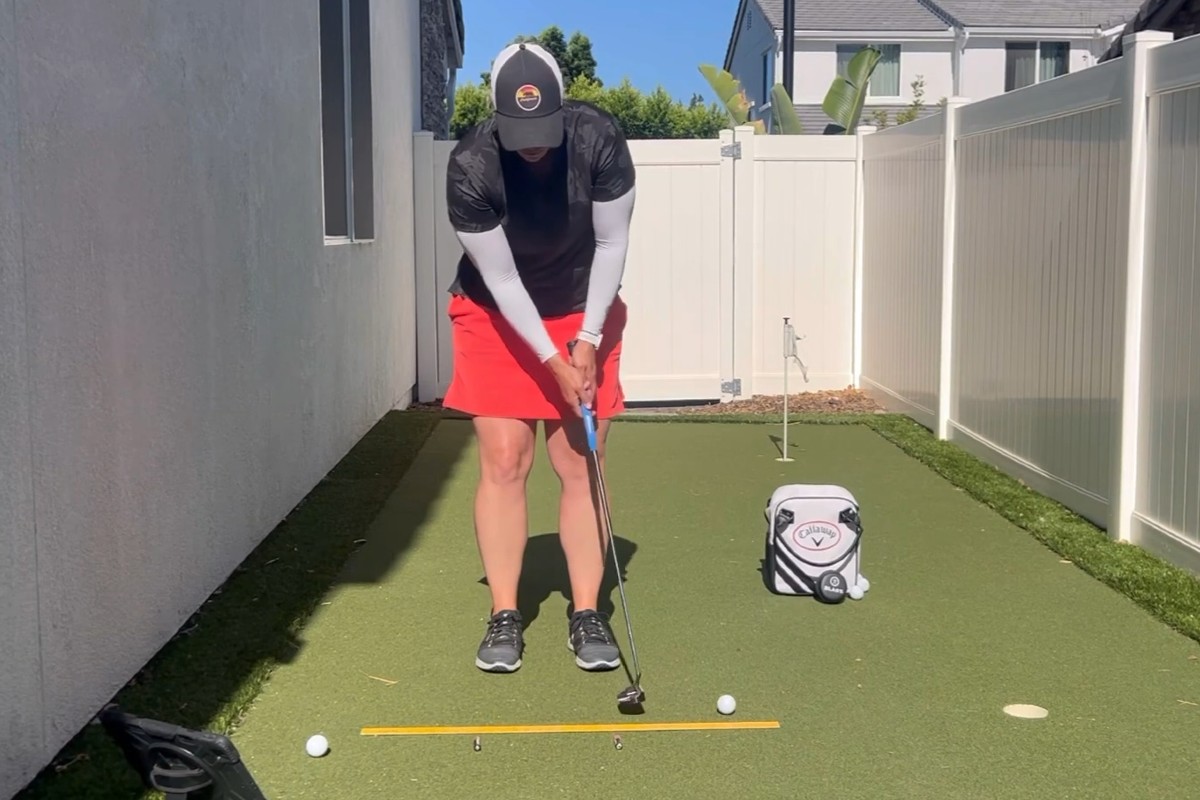Whether your child is a golf prodigy or she or he just has a curiosity about golf, giving a child the opportunity to play can be a life-changing experience. The game truly teaches honesty, focus, perseverance, determination, and problem-solving independence in a way that no other sport can: those who golf have all had bad days on the course, so all golfers already know that it teaches patience.
Teaching methods and ideologies have improved vastly over the last number of years. We are also very fortunate that with the technology and equipment from U.S. Kids Golf, that a child can start golf as early as 3 years old.

However, starting your child in golf at 3 years old is not vitally important. I often get asked, “When should my child start playing?” I always answer, “as soon as he or she shows an interest in golf.” Keeping the game fun and letting children move at their own pace is what will keep them interested. When children want to learn the skills, instead of being forced, the possibilities become endless. Our main goal should be to provide children with the right tools and skills as they develop their own love and passion for the game. Children simply play sports because its fun! We do things that we enjoy, and we avoid things we do not. Why would a child be any different?
As a child’s love and passion for the game grows, it is still vital that the child participates in other sports as these sports will assist the child’s athleticism. The skills that young athletes develop from playing a multitude of sports will help them throughout their entire athletic career no matter which path they choose. It is important to remember that there are no athletic scholarships handed out at age 9 and that developing a love for the game is of the utmost importance in the early years. Early specialization can often lead to burnout for these athletes before they have even realized their true potential. It is essential to allow young golfers to follow their passion and drive. Their self-motivation and passion will determine their future course in the sport. Parents are often pleasantly surprised by how far a child will go to achieve the child’s dreams.
If your child is showing an interest in golf
First, remember children just want to have fun, so let them explore the game on their own. Accompany them to practice and explain things as they ask about them. Remember, you are there to assist them in their journey, but it is important they are in the driver’s seat. It is important to encourage children, but do not instruct them. When a child hits a good shot, say “Great shot.” When a child hits a bad shot, say “Great swing.”
Second, give your child the right equipment. Too many children use clubs that are too long, too stiff and too heavy. It is very important that your child is fitted for the correct set of clubs. When a child plays with clubs that fit, he or she is able to develop consistent swings that will stay with him or her forever. U.S. Kids Golf offers a variety of clubs in different weights and lengths specific to the child being measured. Always remember that a child should grow out of their golf clubs, not into them.

Third, find the right junior golf program with a coach that the child is drawn to. The program should offer a good balance of competition and fun.
If your child is particularly gifted in golf, that is great! Here are a few tips on how to help that gift grow:
 The more accomplished an athlete becomes, the more he or she needs the parent to simply act as a supportive mom or dad. The parent’s first job is to keep golf fun and to provide the child with opportunities that will allow him or her to keep learning.
The more accomplished an athlete becomes, the more he or she needs the parent to simply act as a supportive mom or dad. The parent’s first job is to keep golf fun and to provide the child with opportunities that will allow him or her to keep learning.- If the parent concentrates on the most important aspect of golf—the enjoyment of the game—this might help the child develop an undying passion and a great work ethic. Who knows what exciting things the future may bring.
- Always praise attitude/effort/self-improvement over winning. Place emphasis on the process, not the outcome. Rather than praising scores, put the focus on effort, attitude, and enthusiasm.
- Allow the child to set his or her own goals and encourage him or her to face challenges.
- Encourage the child to develop his or her own practice plans. Encourage the child to take ownership of the game. • Be willing to let the child make mistakes.
- Always arrive at the course as a happy family and leave a happy family, regardless of the result. Make sure he or she knows you understand that golf is just a game and that the child is not defined by his or her score. Important words to help. “I love to watch you play!”
- Encourage the child to participate in other sports. Athletes become better athletes when they play multiple sports. I encourage highly skilled golf children to go out and play a new sport they would not necessarily play in combination with playing golf. This will help the child deal with golf’s grueling lesson: there will be more bad days than good days in competitive golf.
- Be the calm in their game, don’t be the chaos. How your child performs at age 8 has absolutely no bearing on their future in this game. How you react to your child’s performance has every bearing.
- Finally, get involved. Some of my happiest memories are of playing golf with my father and grandfather. Make it a family experience and show the child that golf is a game that can be played no matter what age or level of skill. Show the child that golf is a game that can be played forever.
You are giving your child a gift of the greatest game in the world. Always remember why you chose to introduce them to the game – think of the lifelong opportunities it creates for them – think of the lifelong friends they will make – but most importantly think of the lifelong journey you get to take with them.









